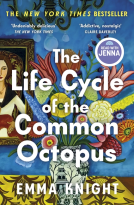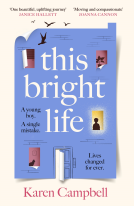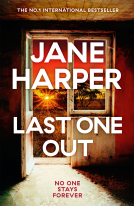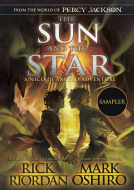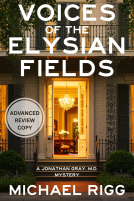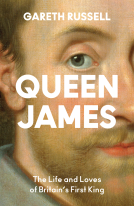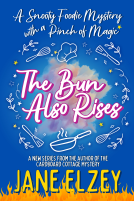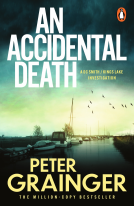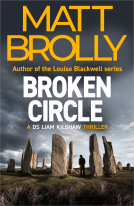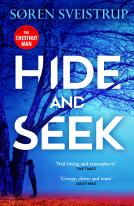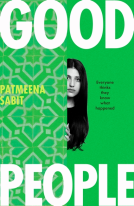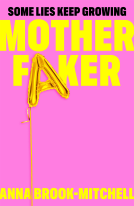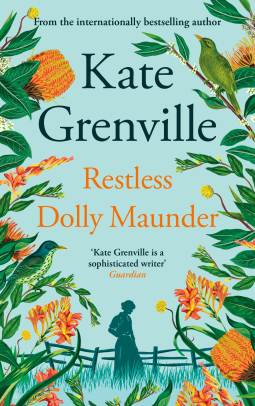
Restless Dolly Maunder
by Kate Grenville
This title was previously available on NetGalley and is now archived.
Send NetGalley books directly to your Kindle or Kindle app
1
To read on a Kindle or Kindle app, please add kindle@netgalley.com as an approved email address to receive files in your Amazon account. Click here for step-by-step instructions.
2
Also find your Kindle email address within your Amazon account, and enter it here.
Pub Date 2 Nov 2023 | Archive Date 9 Nov 2023
Talking about this book? Use #RestlessDollyMaunder #NetGalley. More hashtag tips!
Description
The international bestselling author of The Secret River and A Room Made of Leaves returns with a fictionalised account of her grandmother’s life, commemorating a strong female character making the best out of the times and society she was born in.
Dolly Maunder is born at the end of the nineteenth century, when society’s long-locked doors are just starting to creak ajar for determined women. Growing up in a poor farming family in rural New South Wales, Dolly spends her life doggedly pushing at those doors. A husband and two children do not deter her from searching for love and independence.
Restless Dolly Maunder is a subversive, triumphant tale of a pioneering woman working her way through a world of limits and obstacles, who is able – despite the cost – to make a life she could call her own.
Advance Praise
‘A work of history, biography, story and memoir, all fused into a novel that suggests the great potential of literary art as redeemer, healer and pathway to understanding . . . the writing sparkles with Grenville’s gift for transcendently clear imagery’
Guardian
‘Brings readers into intimate acquaintance with the lives of women in late 19th- and early 20th-century rural Australia . . . elevated by Grenville's crystalline prose’
Globe and Mail
Praise for Kate Grenville:
‘Beautifully written, insistently eloquent and expressive of connection . . . [a] stunning literary achievement’
Guardian
‘Kate Grenville spins a delicately teasing novel about the inherent untrustworthiness of the official record . . . beautiful and subtle’
Financial Times
‘Grenville cleverly uses Elizabeth’s bland and pleasant missives home, showing that they were a carefully constructed fiction. The real Elizabeth — passionate, clever and endlessly resilient — is brilliantly conjured’
The Times
‘Kate Grenville gives voice to this reticent woman, allowing her smart, sparky, shrewd heroine a chance “at last to speak” . . . eloquent [and] evocative’
Daily Mail
Available Editions
| EDITION | Hardcover |
| ISBN | 9781805302483 |
| PRICE | £16.99 (GBP) |
| PAGES | 256 |
Available on NetGalley
Average rating from 19 members
Featured Reviews
 Sylwia P, Reviewer
Sylwia P, Reviewer
⭐️⭐️⭐️⭐️💫
Dolly Maunder was born at the end of the XIX century in Australia, one of five children of a poor sheep farmer. Eager to study since her childhood, Dolly dreamt of becoming a teacher, but her father wouldn't allow it.
Living simple, mundane life working on her father's farm, her only options are marriage or becoming a spinster.
"With the door to being a married woman creaking shut, you took what you could get,"
Eventually, Dolly agreed to marry Bert, a farmhand boy. But she can't settle for a quiet life, just being a wife and mother. In constant pursuit of a better life, she becomes an affluent business owner.
I loved this book and read it in one sitting. I was full of admiration for Dolly's strength and determination. She was born in a world ruled by men, where women had no rights, no chance to make a living on their own.
I have to admit I didn't like her as a person once she became a married woman. Although she hated her father, she repeated the same mistakes with her children, crushing theirs dreams and deciding on their future. On the other hand, not every woman is born to be a mother, but in those days, they weren't really given a choice to become anyone else.
I wish there was more insight into Dolly's personality in the book. However, I understand the book is an account of life someone long gone, and the author didnt want to turn into a novel.
I would definitely recommend this book for fans of strong female characters and complicated mother/ daughter relationships.
 Marianne V, Reviewer
Marianne V, Reviewer
4.5★s
Restless Dolly Maunder is the eleventh novel by award-winning Australian author, Kate Grenville. In the late nineteenth Century, Sarah Catherine Maunder is born, the sixth and second-last child of Thomas and Sarah Maunder. She’s quickly known as Dolly by everyone on Forest Farm and in the town on Currabubula. She is lucky enough to have a school teacher who is strict about attendance, recently made compulsory, and enjoys school and learning.
Theirs is a hard, simple life, but at her aunt’s house, “a special pair of scissors just for cutting grapes … told her something important: there was a world beyond the one she knew.” Dolly is smart enough to entertain becoming a pupil-teacher, but that grandiose idea is quickly vetoed by her father: when she leaves school at fourteen, she will be needed on the farm. She soon understands that a life of endless, repetitive chores awaits her, chores that must be done to a standard that pleases her mean father, if she is to avoid punishment.
“Girls were of no account, you learned that early on. Good enough to make the bread and milk the cow, and later on you’d look after the children. But no woman was ever going to be part of the real business of the world.”
“What could a woman do but marry, and once you were married you belonged to your husband’s world and had to turn your back on your own. It wasn’t betrayal. It was the way the world was.” Dolly observes “A beautiful woman might have a bigger choice of men. But she had to pick one, and whichever one she picked, she’d still end up a wife, with a life as small as the plainest Plain Jane’s.”
The alternative, remaining a spinster, didn’t bear thinking about: “… their moment had passed, the wave they might have ridden into marriage had broken and ebbed into a bit of foam and washed them up in a back street in Curra with nothing and no one.” So Dolly marries Bert Russell, and they take up sheep farming in Rothesay.
But soon enough Dolly realises that success at farming is at the mercy of the weather. A hailstorm decides it for her: a little shop in Wahroonga is a much better bet. But once that is running well, Dolly finds herself looking for more: before long, she also runs a boarding house in Newport. And from there, a series of pubs get the Dolly and Bert treatment: hard work, improvement, profit. But “…the old restlessness: it seemed to be dyed deep in the fabric of who she was, her need to keep moving.”
Eventually, Dolly has the insight to see that “A woman … couldn’t take her future in her own hands and shape it in the way she wanted. Couldn’t even be a teacher if she wanted, and that was surely a humble enough thing to wish for.” She and Bert weather adverse natural phenomena, a global financial crisis and a world war, noting “You could do your best, but if life wanted to pull the rug out from under you it would find a way to do it.”
She also comes to acknowledge to herself her inability to connect with her children: “She heard herself sliding the pointed tip of sharp remarks at him… somehow she’d let all her own hurts be made into that weapon, and she’d turned it outwards against Frank in particular, the baby of the time of betrayal. He’d grown a surface to deflect the blade, but eventually it had found a place to slip in.”
Basing her novel on the life of her maternal grandmother, Grenville gives the reader a fabulous collision of reality and imagination, interweaving fact with fiction, all of it rich in historical detail, with a marvellously diverse cast of real people and (probably) fictional characters. It does feel like her intention to understand this enigmatic woman is realised.
As always, Grenville renders her era and setting with consummate ease, and descriptive prose is exquisite. A few examples: “Her red curly hair like a shining river glinting with light” and “It gave him a special bitter satisfaction to go over and over the stories of his humiliations … Dolly’s father told over the hurts like jewels, turning them in his memory so they flashed with his anger” and “His life had curved in towards hers, just for that moment, but curved away again like railway tracks, two sets of rails travelling towards different places.”
Only Grenville’s choice to omit quote marks for speech, at times causing confusion, prevents a higher rating. Brilliant Australian historical fiction.
This unbiased review is from an uncorrected proof copy provided by NetGalley and Canongate
 Emma B, Reviewer
Emma B, Reviewer
This was a fascinating story which I read in one sitting. It’s so awful reading about the frustrations of being a female, clever, restless, ambitious and having to live with the expectations of the time; also inspiring to read how Dolly never gave up on her dreams and made the best of her situation. Many thanks to Netgalley for an arc of this book.
 Jean B, Reviewer
Jean B, Reviewer
Ive always loved Kate Grenville's work- I think "idea of perfection" is still one of my favourite books - and was pleased to find this was another success. I imagine it must be quite hard trying to write a truthful, if fictionalised, account of one's grandmother's life especially if she wasn't a particularly likeable character. Ms Grenville manages to write with empathy however, and acknowledge the debt we owe to the women before us who have enabled us to have more choices in our lives.
thank you to netgalley and canongate for an advance copy of this book
Readers who liked this book also liked:
Emma Knight
General Fiction (Adult), New Adult, Women's Fiction
Rick Riordan; Mark Oshiro
Children's Fiction, LGBTQIA, Teens & YA
